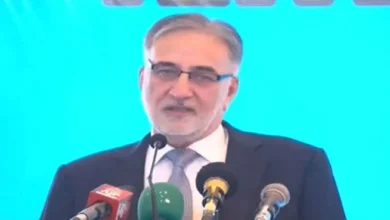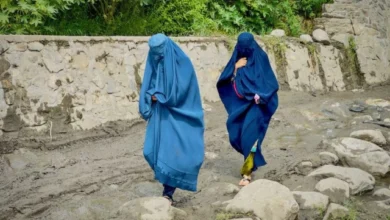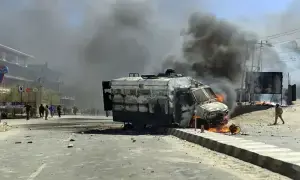Govt survey finds 11.1 per cent of KP children working

Khyber Pakhtunkhwa has hundreds of thousands of child labourers, reveals the province’s first Child Labour Survey 2022-23.
The working children totalling 922, 314 make up 11.1 per cent of the province’s child population with 745,165 beingchild labourers, according to the survey findings that were unveiled in a special ceremony here.
The event was attended by representatives of government departments, UN agencies, donor organisations, academia and civil society.
Adviser to the chief minister on labour Riaz Anwar Khan was chief guest on the occasion.
The survey said working children were economically active, while child labour was the work that was not only mentally, physically, socially or morally dangerous for children but also interfered with their schooling.
It was the second such exercise conducted in the country after Punjab.
The survey conducted by the labour department across the province, including the newly-merged tribal districts, said the residents aged 5-17 years totalled 8.2 million in the province.
It added that 80.9 per cent of working children were engaged in child labour with the rest totalling 177,159 not falling in that category.
The survey report said 465,853 children or 73.8 per cent of child labourers worked in hazardous conditions.
Of them, 69,446 are working with hazardous tools, 111,631 working in hazardous industries and occupations, 426,446 working hazardous hours, 206,539 doing night work and 119,267 others facing abuse, according to it.
The report said for the survey, data was collected from 49,734 households, including 5,976 urban and 43,758 rural ones. The people’s response to the exercise was 92.5 per cent despite “harsh weather and security challenges”, especially in merged districts.
The report revealed that the major four industries for child labour include agriculture, forestry and fishing (51.6 per cent), water collection (19.1 per cent), wholesale and retail trade (9.7 per cent) and manufacturing (7.7 per cent).
According to it, child labour has multi-dimensional causes like head of household had no or primary education (44.7pc), household is in the poorest wealth condition (31.8pc), household is the beneficiary of BISP’s assistance (26.3pc), the head of household has migrated (14.6pc), and household has lost at least one parent (6.6 percent).
The report said child labour had been historically a huge issue with negative consequences on the development and wellbeing of children and a challenge for government and other actors to address.
Adviser to the CM Riaz Anwar Khan told participants that after the survey, stakeholders, including policymakers, should take its findings seriously and use them for wider policy reforms and programmes necessary for the eradication of child labour.
Labour secretary Mohammad Fakhre Alam said the enormous amount of resources invested in the survey was just the beginning of a new long-term initiative and commitment of the government and labour department.
“Now that we have sufficient understanding of the child labour issue in the province, the next logical step is ensuring the full utilization of this evidence for policy reforms and designing programmes to eradicate child labour and provide children decent living and equitable opportunities for education and development. And to achieve this vision, we look forward and welcome collaborations and support from all relevant stakeholders and partners,” he said.
Development director at the British High Commission in Islamabad Jo Moir said child labour was a global issue but it was of particular importance for Pakistan.
She said around 35 per cent of child abuse cases in the country were reported at workplace.
“Drivers of child labour are complex including poverty and social behavior that push children into labour which in turn deprive them of their right to education and health.”
Ms Moir said the drivers of child labour were multi-faceted that required multi-sectoral and collective response.
She stressed the need for supporting parents and families to access better opportunities for their children.
Abdullah Fadil, a representative of Unicef Pakistan, urged civil society and academia to use the survey’s findings to generate social discourse around the social problem and positive social and behavior change aiming at the eradication of child labour.
He said both the government and other stakeholders should take pragmatic steps to change the conditions in which those children lived and promise them better future.



